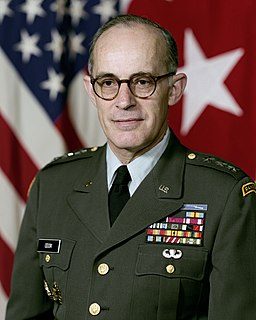A Quote by Richard Dawkins
Saddam Hussein could have provided irreplaceable help to future historians of the Iran/Iraq war, of the invasion of Kuwait, and of the subsequent era of sanctions culminating in the current invasion.
Related Quotes
Actually, if you look at the essence of ISIS, how it came about, it's the product of foreign invasion. Foreign invasion in Iraq led to removal of Saddam Hussein, and we're not unhappy with that, but the point is that foreign presence in any territory has created dynamics. And you cannot avoid those dynamics.
Fortunately in Libya, there's only a few cities on the coast, because most of Libya is a desert. The fact of the matter is, we absolutely have to be - and not just with special forces - I mean, that's not going to work. Come on, you've got to go back to the invasion, when we pushed Saddam Hussein out of Kuwait. We have to be there on the ground in significant numbers. We do have to include our Muslim Arab friends to work with us on that. And we have to be in the air. And we - it should be a broad coalition made up of the kinds of people that were involved when we defeated Saddam.
nothing happens in August - except when something really happens in August. World War I began in August, Saddam Hussein's invasion of Kuwait began in August, al Qaida was preparing to bring down the World Trade Center in August. August, in other words, is the time when all of us should prepare our backup plans, chart our reversals of course, [and] think through possible paradigm changes.
There's no telling what might have happened to our defense budget if Saddam Hussein hadn't invaded Kuwait that August and set everyone gearing up for World War II. Can we count on Saddam Hussein to come along every year and resolve our defense-policy debates? Given the history of the Middle East, it's possible.




































